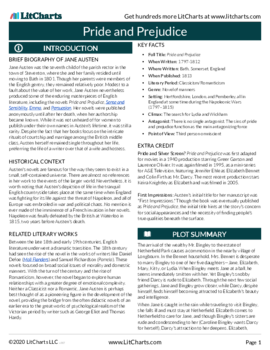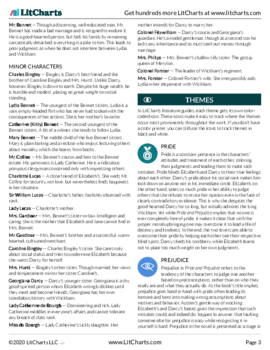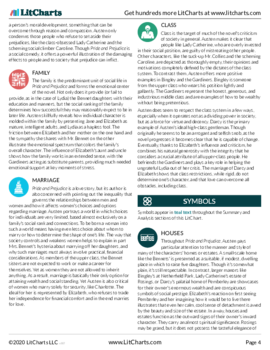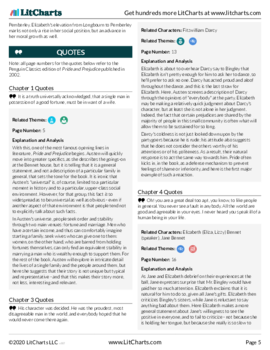- All's Well That Ends Well
- Antony and Cleopatra
- As You Like It
- The Comedy of Errors
- Coriolanus
- Cymbeline
- Hamlet
- Henry IV, Part 1
- Henry IV, Part 2
- Henry V
- Henry VI, Part 1
- Henry VI, Part 2
- Henry VI, Part 3
- Henry VIII
- Julius Caesar
- King John
- King Lear
- Love's Labor's Lost
- A Lover's Complaint
- Macbeth
- Measure for Measure
- The Merchant of Venice
- The Merry Wives of Windsor
- A Midsummer Night's Dream
- Much Ado About Nothing
- Othello
- Pericles
- The Rape of Lucrece
- Richard II
- Richard III
- Romeo and Juliet
- Shakespeare's Sonnets
- The Taming of the Shrew
- The Tempest
- Timon of Athens
- Titus Andronicus
- Troilus and Cressida
- Twelfth Night
- The Two Gentlemen of Verona
- Venus and Adonis
- The Winter's Tale
plus so much more...
-
Allusion
The speaker makes numerous allusions throughout the poem to things she learned in school. These allusions, presented as snippets of information without further context, capture the way bits of information from childhood often stay lodged in people's minds for years.
In the first stanza, for example, the speaker breathes on the photograph in order to "make a ghost" of her old history teacher, Miss Ross. As she does so, she says, "South Sea Bubble Defenestration of Prague." This mashes together two historical allusions:
- The South Sea Bubble was a financial crash in the early 18th century.
- The Defenestration of Prague refers to a 1618 event when Protestants tossed three Catholic officials out a window, leading to the bloody Thirty Years' War.
The speaker presumably learned about these events in Miss Ross's history class; seeing her teacher in the photograph makes them pop into her mind in the present.
In the next stanza, the speaker says that she learned "The RIver's Tale by Rudyard Kipling by heart" in Miss Pirie's class. This refers to a poem by the British writer Rudyard Kipling, which was originally commissioned as a preface to a history textbook. The fact that the speaker learned the entire poem conveys just how much Miss Pirie inspired her. The other allusions in the poem are just fragments of information, but this poem is something lodged in the speaker's "heart."
In the third stanza, the speaker mentions a number of teachers whom she disliked. She presents each name alongside a random scrap of educational content that implies which subject each teacher taught:
But not Miss Sheridan. Comment vous appelez.
But not Miss Appleby. Equal to the square
of the other two sides. Never Miss Webb.
Dar es Salaam. Kilimanjaro."Comment vous appelez" means "What is your name in French," implying that Miss Sheridan was the speaker's French teacher. The next allusion is to part of the Pythagorean theorem, which the speaker presumably learned about in Miss Appleby's math class. The final allusions are to two locations in Tanzania, which the speaker learned about in Miss Webb's geography class.
These scraps of information don't have any additional context. They've become near-meaningless fragments of language that gesture towards the boredom of learning by rote and repetition.

|
PDF downloads of all 3053 of our lit guides, poetry guides, Shakescleare translations, and literary terms.
PDF downloads of all 1909 LitCharts literature guides, and of every new one we publish.
Learn more
|

|
Explanations for every quote we cover.
Detailed quotes explanations (and citation info) for every important quote on the site.
Learn more
|

|
Instant PDF downloads of 136 literary devices and terms.
Definitions and examples for 136 literary devices and terms. Instant PDF downloads.
Learn more
|

|
Compare and contrast related themes.
Compare and contrast Related Themes across different books.
Learn more
|

|
Teacher Editions for all 1909 titles we cover.
LitCharts Teacher Editions for every title we cover.
Learn more
|

|
PDFs of modern translations of every Shakespeare play and poem.
PDFs of modern translations of every Shakespeare play and poem.
Learn more
|

|
Advanced search across our collection.
Advanced Search. Find themes, quotes, symbols, and characters across our collection.
Learn more
|

|
Line-by-line explanations, plus analysis of poetic devices for lyric poems we cover.
Line-by-line explanations, plus analysis of poetic devices for every lyric poem we cover.
Learn more
|


For every lyric poem we cover.



Literature Guide PDFs
LitCharts PDFs for every book you'll read this year.



Quotes Explanations
For all 42,208 quotes we cover.





Teacher Editions
Time saved for teachers.
For every book we cover.
Common Core-aligned



PDFs of modern translations of every one of Shakespeare's 37 plays, 154 sonnets, and 3 longer poems.


Plus a quick-reference PDF with concise definitions of all 136 terms in one place.





















